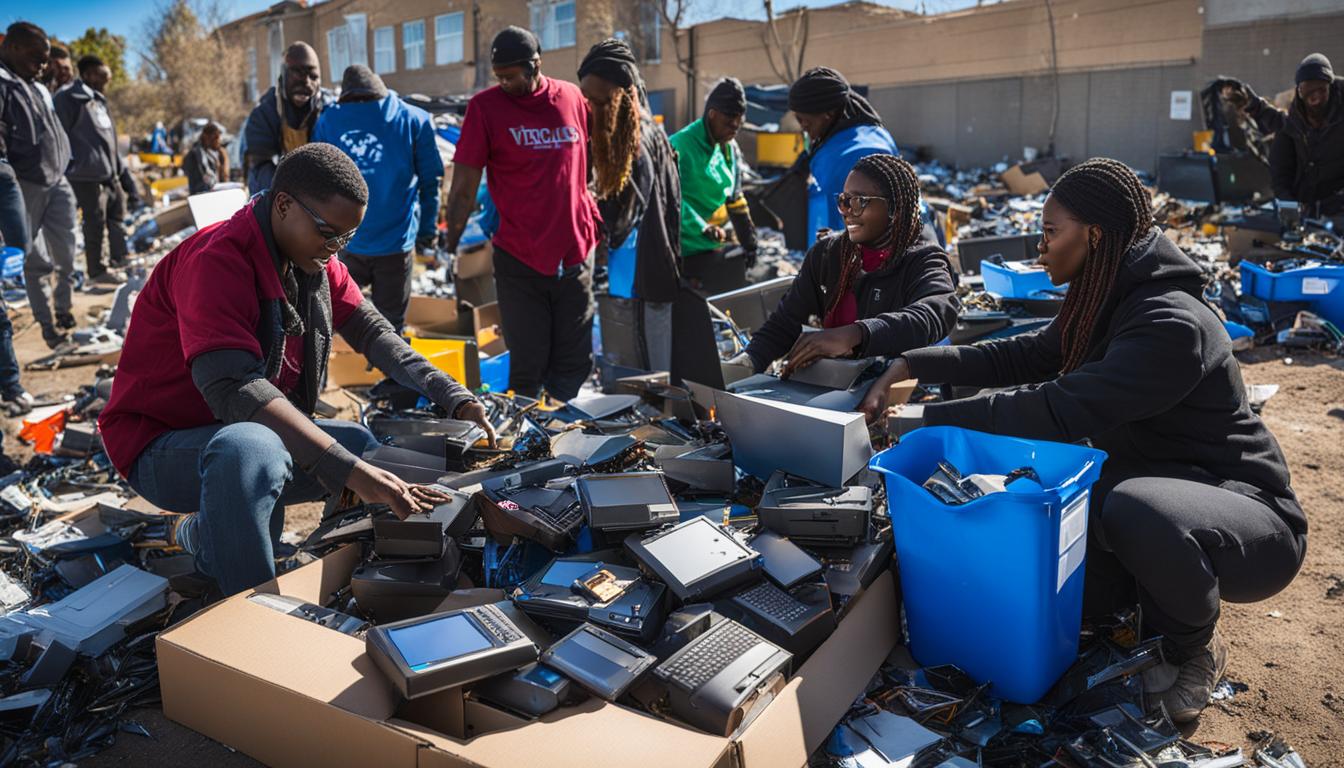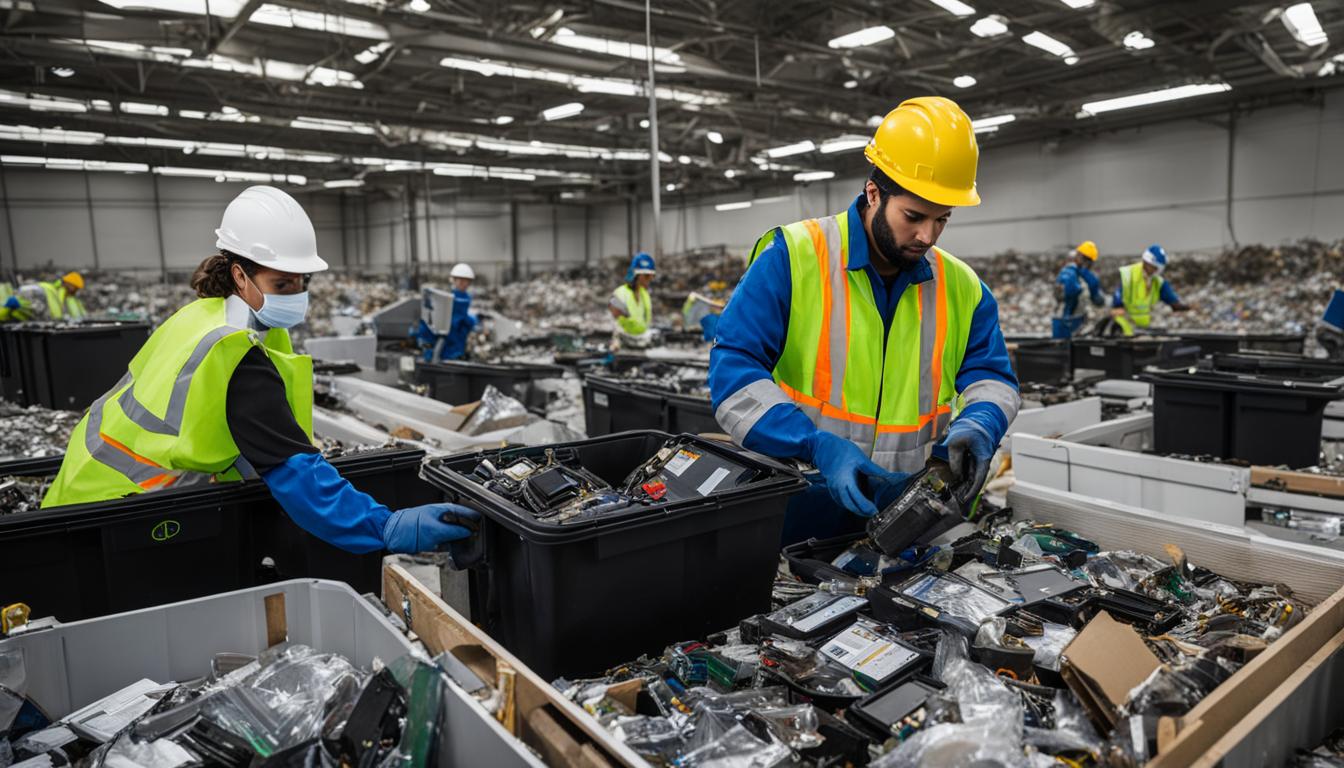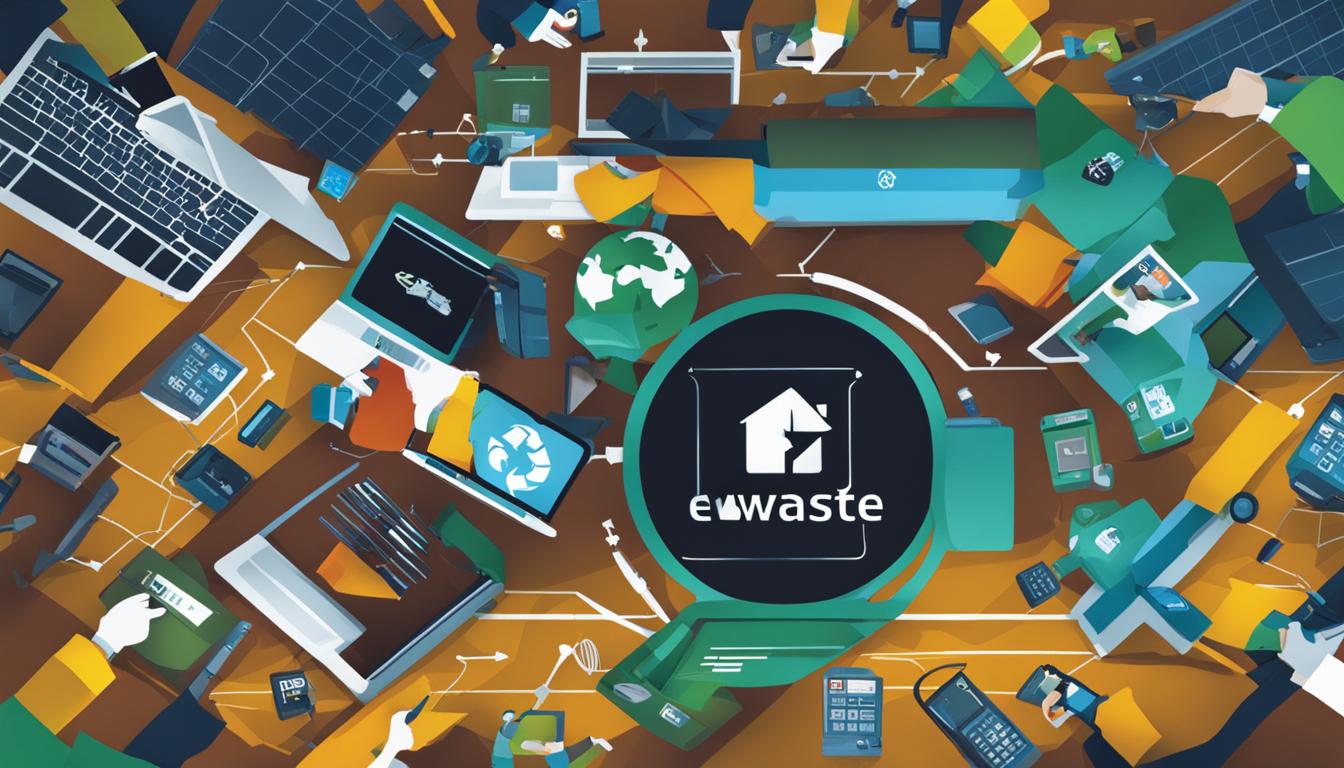The Role of NGOs in Promoting IT Recycling
In a world grappling with the escalating issue of electronic waste, the Role of NGOs in E-waste Management has become increasingly vital. These non-governmental organizations (NGOs) are not just advocates for sustainable practices; they are also active participants in fostering responsible IT recycling. Through various initiatives, including NGO Partnerships for Recycling, these organizations are filling the gaps left by governmental and corporate efforts. They engage in awareness campaigns, community recycling drives, and collaborations with both industries and governments to make a tangible impact. This article aims to explore the multifaceted contributions of NGOs in promoting a culture of IT recycling and sustainable e-waste management.
Grassroots Initiatives: The Foundation of NGO-Led E-waste Management
One of the most significant contributions of NGOs in the realm of IT recycling lies in their grassroots initiatives. These organizations understand that the first step in effective e-waste management is raising awareness at the community level. Through local workshops, educational programs, and community recycling drives, NGOs are making strides in educating the public about the importance of responsible electronic disposal.
Community Recycling Drives: A Staple in NGO-Led E-waste Management
Community recycling drives are often the cornerstone of NGO-led e-waste management. These events serve multiple purposes: they provide a platform for community members to responsibly dispose of their electronic waste, educate the public on the role of NGOs in e-waste management, and often serve as collection points for larger NGO partnerships for recycling initiatives.
Educational Programs: Building Awareness from the Ground Up
Another critical aspect of NGO-led e-waste management is the focus on education. NGOs often collaborate with schools, colleges, and community centers to conduct workshops and seminars. These educational programs aim to instill a sense of responsibility and awareness about sustainable e-waste management practices.
By engaging in these grassroots initiatives, NGOs are not only contributing to the immediate goal of reducing electronic waste but are also laying the foundation for a more sustainable future in IT recycling.
Collaborative Efforts: The Power of NGO Partnerships for Recycling
While grassroots initiatives serve as the bedrock of community awareness and action, the transformative power of NGO partnerships for recycling cannot be overstated. These collaborations extend beyond the local level, involving a diverse range of stakeholders such as local governments, multinational corporations, and even international bodies focused on environmental sustainability.
Public-Private Partnerships: A Win-Win Scenario
One of the most effective forms of NGO partnerships for recycling is the public-private partnership model. In this setup, NGOs collaborate with both governmental agencies and private corporations to create comprehensive IT recycling programs. These programs are designed to be mutually beneficial: the government gains a cost-effective solution for e-waste management, while corporations fulfill their corporate social responsibility (CSR) objectives.
Tech Industry Collaborations: Beyond Recycling
Another intriguing aspect of these partnerships is the involvement of technology companies. These companies often have the resources and expertise to go beyond mere recycling. Through collaborations with NGOs, they engage in initiatives that repurpose e-waste into new technological solutions, thereby contributing to a circular economy. This not only minimizes waste but also maximizes the utility of each electronic component.
Case Studies: Real-World Impact
For those interested in diving deeper into the mechanics and impact of these partnerships, this study on Government-led NGO participation in China’s grassroots waste governance offers valuable insights. The study sheds light on how NGO partnerships for recycling can lead to systemic changes, influencing both policy and public perception.
By strategically leveraging these NGO partnerships for recycling, non-governmental organizations are not just mitigating the immediate challenges of e-waste but are also shaping a more sustainable future in the realm of IT recycling and e-waste management.
Policy Advocacy: Shaping the Future of IT Recycling
Beyond grassroots initiatives and collaborative efforts, NGOs also play a critical role in shaping policies related to IT recycling and e-waste management. Through research, lobbying, and public campaigns, these organizations aim to influence legislative frameworks that govern how electronic waste is handled and recycled.
Research and Data Collection: The Building Blocks of Policy
One of the first steps in effective policy advocacy is research and data collection. NGOs often conduct studies to understand the scale of e-waste, its environmental impact, and the effectiveness of existing recycling programs. This data serves as a foundation for proposing new policies or amendments to existing regulations.
Lobbying Efforts: Making a Case for Change
Armed with data and research findings, NGOs engage in lobbying efforts to influence decision-makers. Whether it’s presenting findings to local government bodies or participating in international environmental forums, the role of NGOs in e-waste management extends to active policy advocacy.
Public Campaigns: Mobilizing Mass Support
In addition to direct lobbying, NGOs also use public campaigns to build support for their policy proposals. Through social media, public demonstrations, and community outreach, they aim to create a groundswell of public opinion that can influence policy changes. For those interested in a deeper understanding of NGO advocacy in waste management, this article on NGOs working on sustainability and recycling offers valuable insights.
By actively participating in policy advocacy, NGOs are not only addressing the immediate challenges of IT recycling but are also laying the groundwork for long-term, systemic change in e-waste management.
Global Impact: NGOs as Catalysts for International Change
While much of the work done by NGOs starts at the grassroots level, their influence often extends to the global stage. Through international collaborations, research publications, and participation in global forums, NGOs are acting as catalysts for international change in the realm of IT recycling and e-waste management.
International Collaborations: Bridging Borders for a Common Cause
NGOs often engage in international collaborations to tackle the global challenge of e-waste. These collaborations may involve sharing best practices, technology transfers, and even cross-border recycling programs. Such international efforts amplify the role of NGOs in e-waste management, making them key players in the global arena.
Participation in Global Forums: A Voice for Sustainability
Another avenue through which NGOs make a global impact is by participating in international forums focused on sustainability and waste management. These platforms provide NGOs an opportunity to share their insights, learn from global experts, and influence international policies related to IT recycling.
Research Publications: Spreading Knowledge and Awareness
NGOs also contribute to the global discourse on e-waste management through research publications. These scholarly articles, often published in collaboration with academic institutions, serve to educate and inform both policymakers and the general public on best practices in IT recycling.
By extending their reach globally, NGOs are not only addressing the immediate challenges at the community and national levels but are also influencing broader, international change in e-waste management.
Conclusion: The Multifaceted Role of NGOs in IT Recycling and E-Waste Management
As we’ve explored throughout this article, the role of NGOs in e-waste management is both diverse and impactful. From grassroots initiatives that educate and engage local communities to NGO partnerships for recycling that bring about large-scale change, these organizations are indispensable players in the field of IT recycling. Their efforts extend beyond local and national boundaries, influencing international policies and practices that aim to create a more sustainable future for all.
Whether it’s through policy advocacy, educational programs, or global collaborations, NGOs are making strides in addressing the pressing issue of electronic waste. Their multifaceted approach not only tackles the immediate challenges but also lays the groundwork for systemic, long-term solutions in e-waste management.
As the world continues to grapple with the growing challenge of electronic waste, the role of NGOs will undoubtedly become even more critical. Their work serves as a beacon of what can be achieved when passion, expertise, and collaboration come together for a common cause.













